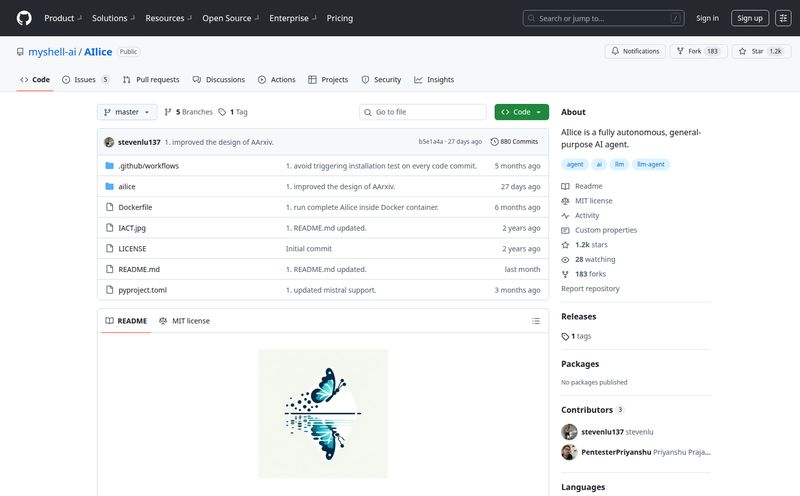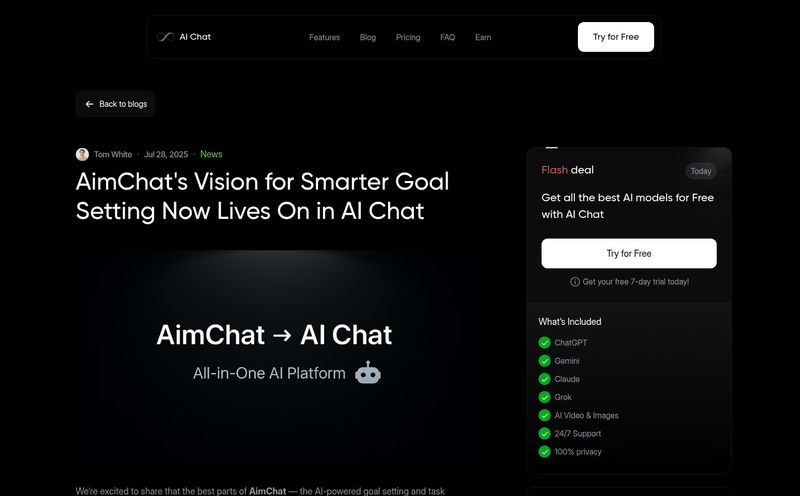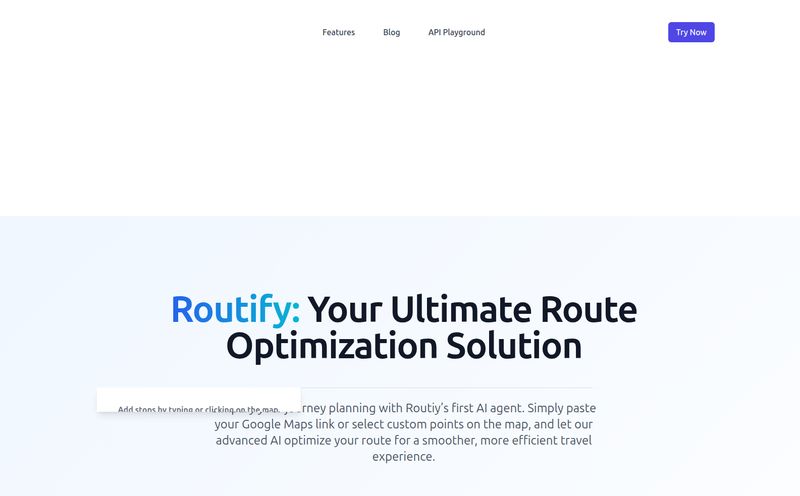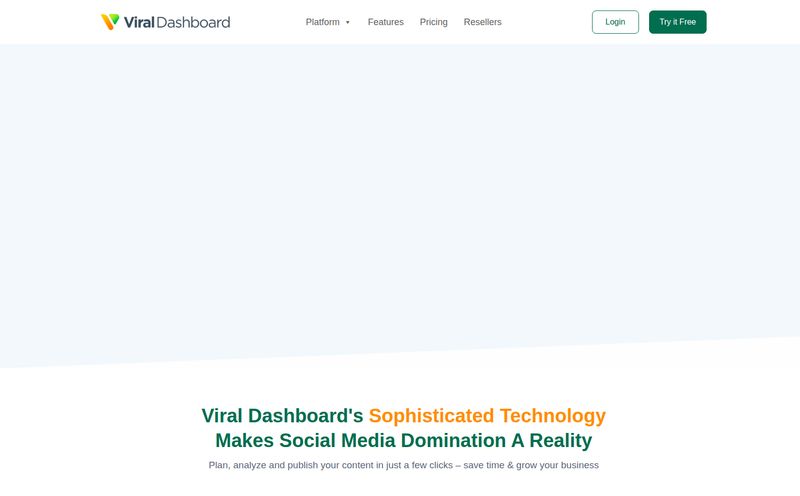Is This The End of Messy Management? My Popwork Review
If you're a team lead or manager, your calendar is probably a warzone. Your brain is a messy archive of half-remembered conversations. Who was supposed to follow up on that Q3 report? What was that brilliant idea Sam had during your last check-in? You know, the one you swore you'd remember. It's gone. Lost to the ether of back-to-back meetings.
For years, I've seen so many platforms promise to be the silver bullet for management woes. Most of them are just glorified to-do lists or clunky HR systems that create more work than they save. They feel… corporate. Dehumanizing, even. So when I first heard about Popwork, I was skeptical. Another “smart assistant” to “drive performance”? Yawn. But then I started digging in, and I've gotta say, I was pleasantly surprised.
This isn't just another piece of software. It feels different. It’s built around the idea of management rituals—turning the messy, often-dreaded parts of managing people into simple, repeatable, and genuinely helpful habits. It’s less of a taskmaster and more of a co-pilot for your team.
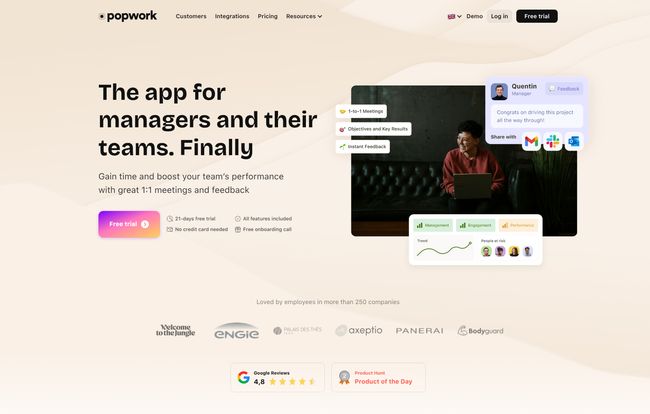
Visit Popwork
What is Popwork, Really? Beyond the Marketing Fluff
Okay, so the official line is that Popwork is a “smart assistant for team leaders to drive performance and engagement.” But what does that actually mean for you, on a Tuesday morning when you've had too much coffee and not enough time?
At its core, Popwork is designed to structure the most important conversations you have with your team. Think of it as a framework for your 1:1 meetings, a pulse-checker for team morale, and a shared brain for goals and feedback. It integrates with the tools you're already drowning in—like Slack and Google Calendar—so it doesn't feel like yet another platform to check. The goal isn't to add another item to your checklist, but to make the items already on it more meaningful. A pretty tall order, but one they seem to be tackling head-on.
Taming the Wild 1:1 Meeting Beast
If there's one area where managers consistently drop the ball, it's the one-to-one meeting. It’s meant to be a cornerstone of good management, but it so often devolves into a casual chat with no agenda, no notes, and zero follow-up. It's a missed opportunity.
This is where Popwork first caught my eye. It creates a simple, shared space for preparing these meetings. Before your chat, both you and your team member answer a few simple questions: What are your priorities this week? What challenges are you facing? How are you feeling? This is brilliant. It means you both walk into the meeting with context. No more “So… what do you want to talk about?” dead air. The conversation is primed for productivity from the get-go.
And the best part? It tracks action items. That thing you agreed to follow up on? It's logged. That new priority? It's noted. This transforms the 1:1 from a fleeting conversation into a building block for real progress. It's like having a personal secretary for every single meeting, ensuring nothing falls through teh cracks.
Taking the Team's Temperature without Being Creepy
Let's talk about the 'mood tracking' feature. I know, I know. It can sound a bit Big Brother. But the way Popwork implements it feels more like a genuine check-in. It's a simple, recurring question that gives you a high-level view of your team's morale over time. Is there a dip every time you approach a big deadline? Is someone consistently feeling overwhelmed?
These are the kinds of insights that are almost impossible to get from just observing. People are great at putting on a brave face. Having this data allows you to be proactive. You can spot potential burnout before it happens and start conversations like, “Hey, I noticed things seem a bit tough lately, what can I do to support you?” In my experience, showing that you're paying attention is half the battle won.
Feedback That Doesn't Feel So Awkward
The annual performance review is dead. Or at least, it should be. The idea of saving up all your feedback for one scary, high-stakes meeting a year is just… inefficient and anxiety-inducing. Popwork encourages a culture of continuous feedback. It provides a simple channel to give praise, share constructive thoughts, and request feedback for yourself.
By making it a regular, low-friction habit, you strip away the awkwardness. It becomes part of the weekly rhythm, not a once-a-year spectacle. It also helps in tracking long-term goals and OKRs, connecting that small piece of feedback to the larger picture of what the team is trying to achieve. Everyone knows where they stand and where they're going.
So, What's the Damage? A Look at Popwork Pricing
Alright, the all-important question. Is this gonna break the bank? I've seen some SaaS tools with pricing structures more complex than tax code, but Popwork keeps it refreshingly simple. Which I appreciate.
Here’s the basic breakdown:
| Plan Type | Price Per Employee | Billing Cycle | Notes |
|---|---|---|---|
| Monthly | €8 | Per month | Flexible, cancel anytime. |
| Annual | €5 | Per month | Best value (saves 38%). |
| HRIS Sync | +€100 | Per month (flat fee) | Optional add-on for auto user syncing. |
For what it does, €5 per employee per month on the annual plan feels pretty reasonable. If it saves you even one hour of administrative headache or prevents one key employee from burning out, it’s paid for itself many times over. The optional HRIS sync is for larger teams who want to automate user management with their main HR system (like Personio or BambooHR). For smaller teams, you probably don't need it.
What I Genuinely Like and a Few Caveats
No tool is perfect, right? So here's my honest take on the highs and the... not-so-highs.
The Good Stuff
I’m genuinely impressed by how it streamlines 1:1s into something truly productive. That alone is a massive win. The insights you get from the mood and progress tracking are invaluable for proactive management, and the integration with Slack and Google Calendar means it actually fits into your workflow. Plus, they offer a 21-day free trial, so you can kick the tires thoroughly before committing.
Some Things to Keep in Mind
On the flip side, when I was exploring, I noticed a few features were marked as 'Soon'. This isn't necessarily a bad thing—it shows the product is actively developing—but it means you might not get every single bell and whistle on day one. The other thing is the cost. While I find it reasonable, the HRIS integration is an extra €100/month, which might be a sticking point for some. Also, if you want specific management and feedback training for your team, that's a custom quote, not included in the standard price.
Frequently Asked Questions About Popwork
- Is Popwork just another tool for HR?
- Not really. While it has HR benefits (like People Analytics), it's designed first and foremost for team leaders and their direct reports. It's about improving the day-to-day management relationship, not just top-down HR processes.
- How does Popwork integrate with my HR tools?
- It can automatically sync your employee list with popular HRIS platforms via an optional paid add-on. This saves you from manually adding and removing users as your team changes.
- Does Popwork's solution include training in feedback methods?
- The tool itself guides you toward better feedback habits. However, for more formal, in-depth training on management skills, you would need to contact them for a custom quote. This is separate from the software subscription.
- Is Popwork easy to set up?
- From what I've seen, yes. The onboarding seems straightforward. Because it focuses on a few core rituals and integrates with tools you already use, the learning curve appears to be quite gentle. They claim you can get going in minutes, which seems plausible.
- Who is Popwork best for?
- In my opinion, it's ideal for managers of teams from 5 to 50 people. At that size, you've moved past informal chats but might not have a massive, dedicated HR infrastructure. It's for leaders who want to be better managers but don't have time for clunky, overly-complex systems.
My Final Verdict: Is Popwork Worth It?
So, we come back to the original question: is Popwork the answer to our management prayers? Maybe not a prayer, but it's a darn good tool. It doesn't try to do everything. Instead, it focuses on doing a few very important things exceptionally well.
It brings structure to the unstructured, makes feedback a habit, and gives you a real-time pulse on your team. It's a tool that fosters better conversations, and at the end of the day, that's what great management is all about. If you feel like you're drowning in the day-to-day admin of managing your team and want to focus on what really matters—your people—then I think giving Popwork's free trial a spin is a no-brainer. It might just be the smart, simple co-pilot you've been looking for.
